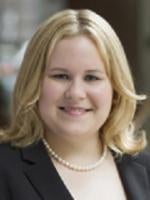The court finds that some physical presence is required to satisfy the venue standard.
On September 11, 2017, Chief Judge Leonard Stark of the US District Court for the District of Delaware handed down two decisions providing key guidelines for addressing venue challenges in patent cases.
In May, the US Supreme Court issued its landmark TC Heartland decision, which held that, for purposes of the patent venue statute of 28 U.S.C. § 1404(b), a corporation “resides” in its state of its incorporation. TC Heartland, however, did not address what qualifies as a “regular and established place of business” under the patent venue statute.
In separate patent infringement cases brought by Boston Scientific Corporation and Bristol-Myers Squibb Company, defendants filed improper venue motions on the theory that they do not have a “regular and established place of business” in Delaware. See Boston Sci. Corp. et al. v. Cook Grp. Inc. et al., Case No. 1:15-cv-00980-LPS-CJB (D. Del.); Bristol-Myers Squibb Co. et al. v. Mylan Pharms., Inc., Case No. 17-379-LPS (D. Del.). Chief Judge Stark’s rulings provide several guidelines for dealing with venue challenges:
-
Burden of Proof on the Party Challenging Venue. The court considered which party should bear the burden of proof on a venue challenge. It concluded that such issue is a procedural, nonpatent issue, and that Third Circuit law would apply. Accordingly, the court held that the moving party would bear the burden of proof in a venue challenge.
-
TC Heartland Effected an Intervening Change in Law. In the Boston Scientific case, the plaintiff argued that the defendants waived any venue challenge because they did not object to venue in their pleadings or in the years before TC Heartland issued. The court concluded that TC Heartland effected an intervening change in law creating an exception to the general rule of waiver, and thus permitted defendants to pursue venue challenges.
-
Some Physical Presence Is Required. The court found that while no fixed space in the sense of a formal office or store is necessary to establish a “regular and established place of business,” some physical presence is nevertheless required. The court made clear that certain activities alone would not satisfy the venue standard, such as (a) simply doing business in a district or being registered to do business in the district, (b) having “minimum contacts” with a district for purposes of personal jurisdiction, (c) maintaining a website that allows consumers to purchase goods or product within the district, or (d) shipping goods into a district.
-
Venue Is Fact Intensive and May—or May Not—Warrant Discovery. The court held venue to be a “fact intensive inquiry” dependent on the circumstances of the case. In these two cases, the inquiries led to different results.
In the Bristol-Myers Squibb Company case, the court found that while the plaintiff was unable to identify a sufficient physical presence of the defendant in the district, there were sufficient additional facts raised such that “the Court cannot say that [the defendants do] not have a regular and established place of business in Delaware.” Thus, the court denied the motion without prejudice as to the defendants renewing their venue challenge after venue-related discovery was completed.
By contrast, in the Boston Scientific case, the court granted the defendants’ motion and transferred the case because it found that the defendants presented facts that established that they do not have a regular and established place of business in Delaware. The court denied the plaintiffs’ request for venue-related discovery, finding that the record sufficiently demonstrated improper venue and that further discovery would “appear[] to be no more than a fishing expedition.”





 />i
/>i

